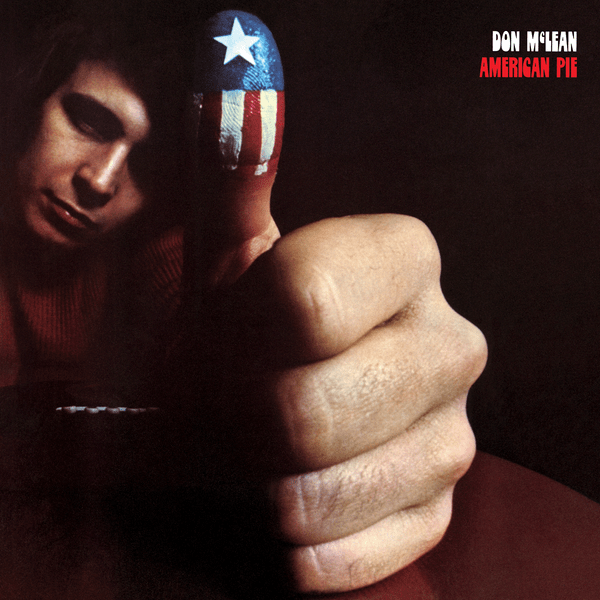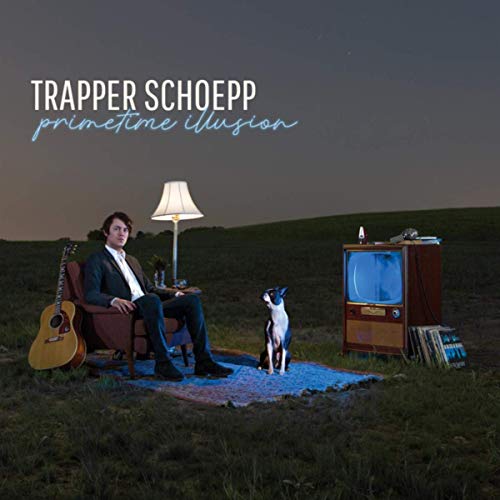I woke up sad this morning. It’s February 3rd, 2019, the 60th anniversary of the plane crash that killed Buddy Holly, Ritchie Valens, and J.P. Richardson, otherwise known as the Big Bopper. There is a poem by Robert Frost that says, “Nothing gold can stay” and this was the moment that taught a generation that rock and roll wasn’t forever.
Don McLean wrote a famous song about the tragedy in 1971 called ‘American Pie’. It’s filled with the kind of imagery that Bob Dylan was famous for, and a sing-along chorus that might have been the most well known this side of ‘Hey Jude’ until Oasis wrote about walls, and later Mr Brightside came out of his cage. Some songs just stick to people like glue, even if they’re not sure why and ‘American Pie’ is one of them.

It’s a song about looking back and thinking everything was better then. Steven Hyden pointed out in his book ‘Twilight of the Gods’—the definitive book on classic rock—that McLean was 26 when he wrote ‘American Pie’ and 14 when the plane crashed. His song looks back through those years and the loss of innocence that the country, and surely himself, experienced after that day. It’s catchy, fun, and pretty maudlin. As the kind of guy who spends a lot of time thinking and writing about rock music and what it all means, I absolutely adore the song. I always have.
Years ago my brother would occasionally point to the Paul McCartney and the Wings song ‘Band on the Run’ as the greatest rock song of all time. He never bought, downloaded, stole, or otherwise obtained a copy to listen to at will because he would ‘abuse the privilege’ and listen to it too much. Instead he just wanted to enjoy it to the fullest whenever it would come on the radio. This was how I felt about ‘American Pie’. I never got a copy and just enjoyed it whenever it would pop up somewhere. As radio gave way to streaming and I filled my house with Amazon’s handy little spy devices, I finally broke down and got an mp3 copy. I did it mostly because I was putting together a mix on my ipod (I still use one of these because I hate streaming music in my car, leave me alone) to try and recreate the sound of the classic rock stations of my youth. This endeavor was also Steven Hyden’s fault, but that’s neither here nor there. The point is I’ve listened to the song a lot more recently than I ever have before and I think I understand it a bit better now.
At its very heart the song is about rock and roll as a force that runs through our lives. Each verse feels like it tells the story of a year in McLeans life. It’s such a weird combination of nostalgia, love, regret, rage, and confusion that there is something there for everyone. It might be mostly about the music he loved when he was 14 but it’s also about the music of those intervening years.
The song is about looking back to try and find a way forward. McLean was trying to understand his life through all the triumphs, tragedies, and confusion that we go through.
Music is like that. Songs and bands get fixed in time for us and will always bring us back to places and periods in our life. We listen to those songs sometimes for nostalgia, and sometimes to try and remember who we were then, to help us figure out who we are now. Songs can soundtrack happy times and sad times and everything in between. I will always associate ‘The Boxer’ by Simon and Garfunkel with my grandfather because I happened to be laying in bed listening to it when my brother came into my room to tell me grandfather had passed away. It’s probably my favorite of their songs, but it will forever have a sadness and emotional resonance for me that won’t be the same for ‘I am a Rock’.

This past week two things happened that will always be intertwined for me. On Monday I listened to Trapper Schoepp’s new album “Primetime Illusion” for the first time, and on Thursday I was told by my employer of 14 years that my services wouldn’t be needed past May. This is not the association I would have liked for this, or any, album but we never really get to make those decisions.
Since I got the news I’ve run through most of the usual emotions that accompany a shift like that. Anger, sadness, depression, excitement, fear, nostalgia, the whole gauntlet. Like most American men older than 25, I have a tendency to suppress emotions and generally only feel them in a muted sense. I use music to feel things deeper than I normally do on a day to day basis, and in that sense, having an album as broad and deep as ‘Primetime Illusion’ has helped me in processing everything.
So I’m sitting here on the anniversary of the day the music died, feeling pretty low about my immediate future, having listened to Don McLean ruminate on fire, the Devil, and the Jesters thorny crown, and all I can say about Primetime Illusion is that it’s a masterpiece. Whenever I hear it the rest of my life it’ll remind of a rough patch and I’ll smile because it came along and reminded me of how even when things are bad, music can be so, so good. To some degree the record will be my ‘American Pie’.
The album opens with the gorgeous ‘Shakedown’. It’s a statement song that Schoepp sings with a defiance and confidence that has been building in his previous albums. As an album opener it says up front that Schoepp has shed all his baby fat and has definitely arrived. The song starts with him telling us that “I’ve earned my stripes, and I’ve learned how to fight, now I’ve got nothing to fear.” It is a clarion call that to let us know that this album is the one. He’s here and he’s ready for what comes next. I adore this song unreservedly. I love that it is bold as brass, and beautiful to boot. It feels like all the humanity, melody, and wit that runs through his music writ large. Nothing to fear, indeed.
If ‘Shakedown’ is Schoepp kicking down a wall, then ‘It’s Over’ is him striding into the room. It’s another rocker that continues the pace set down in the opener. It’s a Springsteenesque song that wouldn’t be out of place on ‘The Wild, the Innocent, and the E-Street Shuffle’. It has piano, big sweeping flourishes, and plenty of Schoepp’s clever-as-hell lyrics. There’s a lot packed into 3:11 and it’s a fun as hell ride.
“Drive-Thru Divorce” is one of those songs where he pulls off the trick of making a song that would fit in any era of rock and roll. If this had been recorded by the Bobby Fuller Four in the 60’s, the Byrds in the 70’s, John Mellencamp in the 80’s, or Uncle Tupelo in the 90’s it would have sounded just right. It’s not easy to make rock and roll that doesn’t sound fixed in it’s own era. Schoepp has proven to be good at this on his previous albums and this song is no exception. A lot comes down to his voice having a timeless quality, and it’s really on display here.

The next song, ‘Freight Train’, is the most muscular on the album. Schoepp sings it in a kind of growl that escalates to a near scream on the chorus. The driving blues riff propels the song along the tracks like the titular train. It’s the kind of song that makes you want to drive fast with the windows down, slapping the side of your car with your hand in time to the rhythm. It’s a thumper. It sounds like he is singing it mad, which is a completely new sound for him. It caught me off guard my first listen through, but after a few more times it’s really grown on me. This kind of thing can come off as fake when some artists try it, but it doesn’t with Schoepp. It sounds like he’s lived in Trump’s America for a couple of years and needed to put some of that rage into a song. I dig it.
‘What You Do to Her’ is the record-maker. It’s a big time song. The kind of song that turns rock musicians into rock stars. The guitar, the harmonica, the pace, the rhythm—it’s all perfect. I would say that without a doubt it is the best song on the album. The lyrics are also phenomenal. They’re angry and smart, and poignant. The song is about a scumbag woman abuser and how the system fails his victims and Schoepp’s anger at it all. It’s important to address it. The song channels a lot of anger into a phenomenal rock song. Most songs of this nature are about love or romance, or other normal tropes. To put together such a great rock song about such a tough topic is no small feat. One personal weird note about it is it really reminds me of ‘Cherry Cherry’ by Neil Diamond, which is on my all-time favorite song list, so I was probably destined to love it.
“If all my Nine’s Were X’s” with its “All Right Now” style guitars is another great rocker on an album full of them. I’ve heard a few people refer to the album as ‘70’s tinged’ and this is the song I most hear it on. It’s just a good crunchy rock and roll song that would have bought Schoepp a dump truck-full of cocaine if he’d released it in 1976. It for sure would have shown up on the ‘Dazed and Confused’ soundtrack. It’s a stadium rocker with cowbell and everything. Some summer day in the near future it’s going to be blasted at full volume as I drive too fast down a highway heading towards the freedom of the open road.

Of all the songs on the album, ‘Backup Plan’ is the one that would have fit just as easily on ‘Rangers and Valentines’. It doesn’t feel like an out-take per se, but it has that same wistful humor that ran through that album. The sort-of-kind-of romantic lyrics that permeated Rangers is present here, more so than the other tunes on this record. It’s not at all out of place on ‘Primetime Illusion’ but it’s almost a throwback, if you can have such a thing to an album that’s only three years old.
‘Sleight of Hand’ is the quietest and slowest song here. The harmonica and the muted guitar give it an emotional resonance that almost made me cry the first time. Schoepp sings the song like a confessional. He sings like he’s talking himself into something and then makes the decision when his voice raises on the chorus. It’s pretty, and delicate, and real. It’s tough, but on an album full of such great songs, I think this one is my favorite. It taps into something that Dylan, Petty, and Springsteen all have spent their careers exploring and it’s evidence enough that Schoepp belongs in that lineage.

“TV shows” with its Ennio Morricone guitars and Schoepp’s borderline sinister vocals send the album to a whole different local. Most of Trapper’s music is rooted in the midwest but this one calls to mind driving up the California coast on a humid night as the sky goes red on a lonely summer night. The lyrics almost feel counter to the vibe being laid down. On the surface the song is about television but there’s more going on here. It’s a fever dream of a song and stands out on the album as something far afield for Schoepp, but he nails it down to the sultry ‘Everybody, Everybody’ of the chorus.
The penultimate song, “My Comrade”, starts out like the old Wreckless Eric classic ‘Whole Wide World’ but instead of a punk vibe it’s got the signature of Replacements by way of Jim McGuinn with a dose of Whiskeytown thrown in sound that Schoepp does so damn well. It builds the slow beginning into as pure a rock song as he’s performed. The guitar is so much fun on this song with its peaks and valleys and crisp clean sound. It’s got the the big loud chorus you would want in this kind of song. If this was the final song of a live show, you would walk out pumping your fist and satisfied.
The final song on the album is the most famous. I wrote about it a few weeks ago. It’s the perfect album closer for what this album is doing, tapping into music’s past to move forward. Intertwining Bob Dylan’s old lyrics with Schoepp’s musicianship and sense of melody and feel for the past, present, and future creates a song that is timeless.
Trapper Schoepp, like Don McLean before him, looked behind him to see where it all came from and the artists and sounds that got him to where he was. McLean put together the almost perfect song about rock and roll nostalgia and tried to figure out what it all meant. Primetime Illusion learned the lesson McLean did but instead of saying that the music is dead, he took all those lessons and through the course of eleven songs declared it very much alive.
It’s been a bad week for me no doubt, but spending the anniversary of the day the music died those 60 long years ago listening to one of the most vital beating hearts in rock and roll today was all the reminder that music can indeed save our mortal souls.


Nice piece.
You got me with this one–I picked up “Primetime Illusion” immediately. Thank you!
And, to rewind a bit, who doesn’t love a “Mr. Brightside” sing-along….